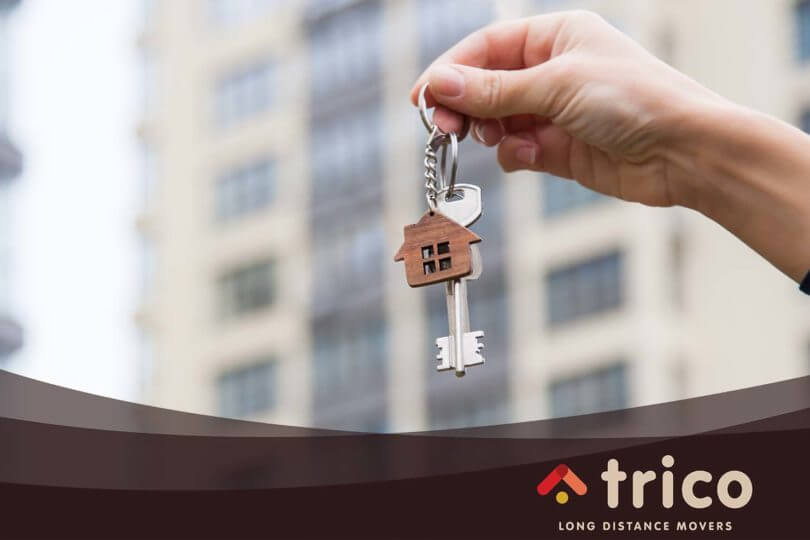The joy of finally relocating to a city and getting to experience living in apartments may be diminished when you realize how long the renting process is. Before you get excited about relocating and packing your belongings, learn what do you need to rent an apartment, so you don’t get surprised and derailed.


Being sure that you want to move out isn’t the same as being ready for it. Someone wants to leave their old life behind as soon as possible, and that’s when most relocation mistakes happen. You may also end up regretting some things. So, before you learn what do you need to rent an apartment for the first time, see if it’s the best time to move out.
A good moment to move out means having the budget for it, being old enough, having support from at least one person, or, if not that, being sure that relocation is the best thing for you. After you’ve made up your mind on when and where to go, then you can look up relocation essentials, like the cost of movers to a one-bedroom flat and the requirements for renting such a property.
Looking at apartments that are up to your budget doesn’t necessarily mean you have to relocate to a smaller home. Even if you are, there are many small flat ideas and accessibility to cross-country moving services. Whatever you do, make sure to fit your budget according to your preferences and if there is any compromise that needs to be done, try it.
There may not be a balcony to give you a view of the city, but there may be a very cozy and accommodating bedroom or a big, full bathroom. Not having everything on your list doesn’t mean you shouldn’t relocate. It’s all about deciding what’s best for you at the time and how you can live with what’s available.
It’s challenging to go away from family for the first time, but that doesn’t have to be done on your own. You can always move out with a roommate; you can both look up long-distance movers near me, who can then give you the cost of moving into a two-bedroom flat.
Sharing financial responsibilities with somebody is easier for anyone looking to move out, whether for the first time or the fifth. That’s why it’s better to consider if you can live alone. Do you want to, and can your budget and options accommodate that lifestyle?
For example, it would be easier to live with a roommate or two in a big city because the expenses would be divided. Then, you may have the option of saving up to go and live on your own eventually. Sometimes rental applications go better because one of the roommates has a better credit score. Since that’s what usually determines a landlord’s decision on who to choose, team up with someone and use the opportunity to score a great home.

The essentials of renting apartments are similar for every landlord and building. Many would ask how old do you have to be to rent an apartment, and for a person to independently live in a place, they’d have to be at least 18 years old. Younger people can move in if they have parental permission or government assistance.
When you feel ready to adjust to a new town, looking for the right property to live in will be easier. There’s nothing more unexpected than relocation depression which can throw a wrench in your works. Stay ready by learning the renting process step by step, which would go like this:
A high-rise building is any building over seven stories tall, while the minimum is ten in some cities. If you’re scared of heights, this kind of life may not be for you, but there are some advantages to it, too.
There aren’t special requirements to rent an apartment in high-rise buildings. The biggest difference between a regular condominium and a high rise is that the latter has more rental options (because there are more apartments, of course) and amenities. The downside is that other buildings that aren’t high rises may offer smaller rents for the same amount of space.
The girl in the video below has moved into a high-rise property on the 17th floor with her partner. If you’re interested in the aesthetics and amenities, watch this video.
Settling into a new home doesn’t just rely on changing your address when you move. If you’ve done it before, you know all the ins and outs of renting and buying. If you haven’t, then you may not fully understand why landlords ask for specific information.
It’s nothing like a high school maths test, so you’ll already know the answers to all the questions, but it’s not an easy form, either. Here are the most common questions on a rental application:
Some rental applications require information about your vehicle, reasons for leaving the old place, and alike. Depending on the state, there can be an application fee. In California, the rental screening process costs up to $35, up to $20 in Wisconsin, and in Vermont and Massachusetts, landlords don’t charge for rental screenings.
When it comes to income, the landlord won’t exactly look into your spending habits. To them, the only important thing is that your financial history doesn’t have any late payments and non-sufficient funds situations. You’ll have to provide proof of a steady income for the past six months, and if you’ve been at your current employer for less than that, evidence of previous employment elsewhere.
A credit score is a number given to you when you spend money and shows your potential landlord and bank how likely you are to pay a loan back in due time. To make the relocation stress even higher, there’s a certain number you have to have to be able to get a contract.
So, what credit score do you need to rent an apartment? The consensus is that 620-650 is the lowest score a tenant should have. Anything below 600 is a poor score, and everything over 800 is outstanding. If your credit is low, you may want to delay your start of packing for a move. Either that or find a roommate with an above-average score, and you may get a chance.

How You Can Be More Prepared and Aware of Your Renting Rights
The whole renting ordeal may sound scary for now, but you have to know that, as a tenant, you have the right to make requests and ask questions, too. The housing market isn’t there to benefit only landlords and real-estate agents, but more importantly, those who wish to invest in property and become renters.
The questions to ask before renting an apartment will determine if you’re willing to pay so much for a monthly lease, whether your income can handle it, and if your new flat shopping list needs adjustment. For example, if you plan to move with pets, pause on paying cross-country movers for their packing services because your landlord may not allow furry friends. The best way you’ll know this is by asking questions.
You could prepare many questions but don’t consider putting your name on a lease and giving a deposit before you check the neighborhood safety rates. A landlord will try to wiggle their way out of telling you about it unless it’s specified in the lease or even legally. In California, they have to disclose if a registered sex offender lives in the area, so check your rights according to the state you’re in.
Understandably, you wouldn’t think of this if you had to move out at the last minute, but if you’re relocating with children, the area’s safety, in the long run, is the most important thing imaginable here.
Imagine hiring car shipping services from a long-distance moving company, and they can’t approach your street because of zoning laws. This is something that rentees may not always disclose, but it matters a lot for anyone looking to move in. This scenario would typically occur in a big city because zoning laws are somewhat unpredictable there, especially in historic districts and centers.
When you start home hunting online, you could get deceived by ads easily. That’s why you shouldn’t agree on a deposit or lease before getting the physical tour of the place. Everyone wants their income to match the expenses, but this typically isn’t the case in metropolitan areas. Sadly, many rentees think they can evaluate a flat based on its location, and places like that normally can’t be saved even in someone’s mind, let alone IRL.
Questions you could provide to a landlord might include:
The list can go on, but the general idea is that you should feel free to inquire about anything that interests you. That way, both you and the rentee have a clear understanding of who you’re dealing with.

When you ask yourself honestly what your reasons to move are, you will also be able to answer the question “what do I need to rent an apartment.” While you do depend on rents, prices, landlords, and other factors, giving yourself a budget and preferences will solve many of these issues.
When you know what to look for, accepting and declining proposals will be easier. Not just that, but you’ll feel more confident when you finally contact long-distance moving services and give them a destination. The more informed and motivated you are, the results of your search will be better. Now that you have everything to know about renting, maybe it’ll be easier to make the transition.